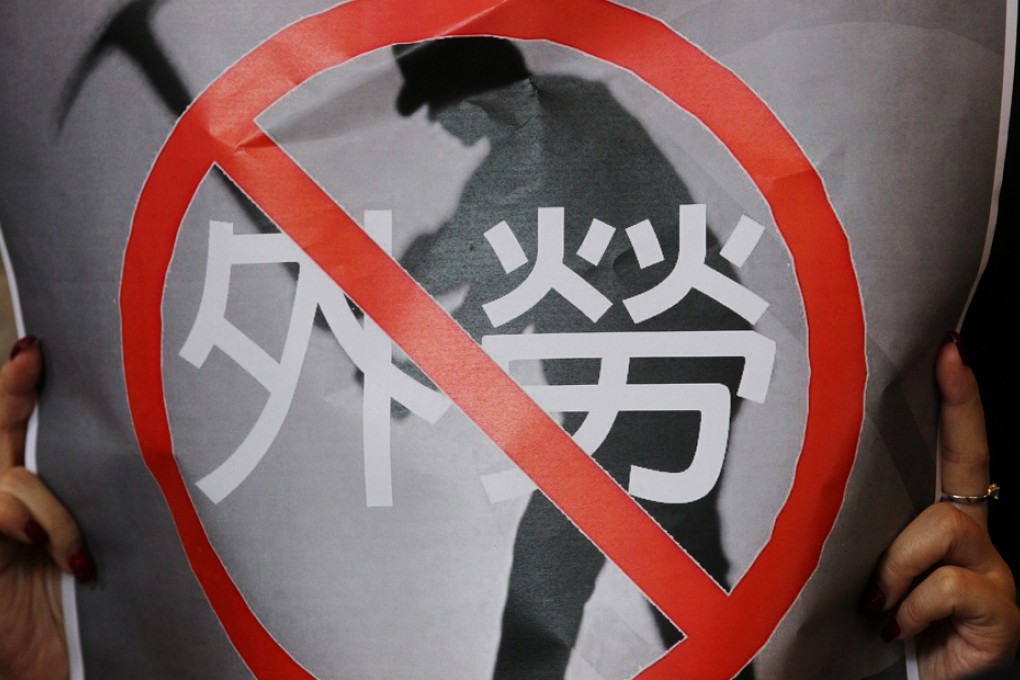Importing foreign workers into Hong Kong must be an option
Unionists are up in arms as labour importation is back on the government agenda. This is hardly surprising, given their knee-jerk opposition to any step they think will have an impact on work opportunities for locals. Retraining is their answer when employers complain of manpower shortages.

Unionists are up in arms as labour importation is back on the government agenda. This is hardly surprising, given their knee-jerk opposition to any step they think will have an impact on work opportunities for locals. Retraining is their answer when employers complain of manpower shortages.
Unfortunately, the invisible hand of the free market does not always function as effectively as it should. Even with government intervention, retraining takes time. Meanwhile, the city's competitiveness and development are hampered by serious manpower shortages. As the economy and unemployment situations are relatively stable, it is time for a rational discussion on labour importation.
The issue has been put into perspective in the public engagement exercise on population policy. Instead of just tackling it as a labour issue, it has been tied to the city's changing demographics, which ultimately affects development and competitiveness. According to the government, the number of private sector vacancies rose almost 10 per cent year-on-year to 77,900 in June. The figures for construction, information and communication, transport and retail are even higher, ranging between 18 and 74 per cent. The situation is not helped by a 17-year-old importation scheme that leading chambers of commerce have criticised as too rigid and outdated. By 2012, there were only 2,415 imported low-skilled workers, representing just 0.1 per cent of the workforce.
The labour sector is understandably concerned about the impact of a relaxed scheme. But past experience shows there was no serious abuse. As long as the scheme is carefully administered, jobs for locals should not be affected.
The question is no longer whether we should bring in more foreign workers to fill vacancies. As mentioned in the consultation paper, the question is how to make our system of labour importation more effective without jeopardising the interests of local workers.
Our global competitiveness hinges on a sustainable supply of manpower. Places like Macau and Singapore have long ditched the protectionist mindset to bring in foreign workers to power development. More than a quarter of their workforces are now filled by non-locals. If some sectors can prove that they are having genuine difficulties in recruiting, importation should be an option for consideration.